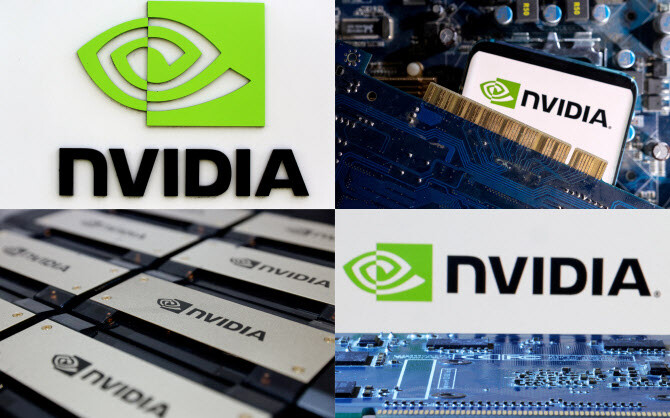
The escalating tensions in the US-China trade war have taken a fresh toll on the technology sector, as the Trump administration has intensified its restrictions on the export of advanced artificial intelligence (AI) chips to China. The latest move, targeting Nvidia's highly sought-after H20 AI-dedicated chip, has triggered a significant downturn in the company's stock value, signaling growing concerns within the market about the future of technology trade and the potential ramifications for key players like Nvidia.
On Tuesday, April 15th (local time), investors reacted sharply to the news, sending Nvidia's stock price tumbling by over 6% in after-hours trading on the New York Stock Exchange. The stock, which had earlier closed the regular trading session with a modest 1.35% gain, experienced a dramatic reversal, plummeting to $105.16. This sudden decline underscores the market's sensitivity to geopolitical developments and their direct impact on major technology companies with significant international operations.
The US government's decision to further tighten export controls on AI chips marks an escalation of previous measures aimed at limiting China's access to cutting-edge semiconductor technology. In the past, the US had already placed restrictions on the export of certain high-performance AI chips developed by Nvidia and other companies, citing national security concerns and the potential for these technologies to be used in military applications.
In response to these earlier restrictions, Nvidia had proactively engineered the H20 chip as a customized solution tailored specifically to meet the technical specifications and regulatory requirements for export to China. This strategic move allowed the company to continue serving the lucrative Chinese market while adhering to the existing export control regulations. The H20 chip quickly gained traction among Chinese AI developers and researchers due to its robust performance and optimization for various AI workloads.
However, the delicate balance achieved by Nvidia appears to have been disrupted by the Trump administration's latest directive. Citing the ongoing complexities of the US-China trade relationship and a renewed focus on preventing China from gaining an edge in critical technologies, the administration has now extended the export restrictions to include the H20 chip.
According to Nvidia's official statement released on Tuesday, the company received notification from the Trump administration on April 9th, informing them that a license would be mandatory for any future exports of the H20 chip to China. This initial communication was followed by a subsequent notification on April 14th, which conveyed that this new licensing requirement would be implemented indefinitely, creating a long-term uncertainty for Nvidia's operations in the Chinese market.
The financial implications of these tightened export controls are substantial for Nvidia. The company estimates that the new licensing requirement will result in an additional cost of approximately $5.5 billion. This figure likely encompasses potential lost sales, the cost of navigating the complex licensing process, and the potential need to re-engineer products for the Chinese market in the future, if possible at all. The significant financial burden underscores the strategic importance of the Chinese market for Nvidia's revenue and growth projections.
The sharp decline in Nvidia's stock price in after-hours trading reflects the market's apprehension about the potential impact of these export restrictions on the company's future earnings and market share. China represents a significant portion of the global AI chip market, and any limitations on Nvidia's ability to sell its products in this region could have far-reaching consequences for its financial performance and competitive positioning.
This development also highlights the broader risks associated with the ongoing trade tensions between the US and China, particularly in the technology sector. The interconnected nature of the global technology supply chain means that restrictions imposed by one country can have ripple effects across the industry, impacting companies and consumers worldwide. The uncertainty surrounding future trade policies and the potential for further escalation continue to weigh heavily on investor sentiment in the technology market.
While the Trump administration's rationale for these stricter export controls centers on national security and preventing the transfer of advanced technologies to potential adversaries, critics argue that such measures could ultimately harm American companies by limiting their access to a crucial global market and potentially stifling innovation. Furthermore, they contend that these restrictions could incentivize Chinese companies to develop their own indigenous AI chip technologies, potentially leading to increased competition for American firms in the long run.
The situation remains fluid, and it is unclear what further actions the US government might take regarding technology exports to China. However, the immediate market reaction to the news concerning Nvidia's H20 chip underscores the high stakes involved and the potential for significant economic consequences as the US and China continue to navigate their complex trade relationship in the critical domain of advanced technology. Investors will be closely monitoring future developments and assessing the long-term impact of these export restrictions on Nvidia and the broader technology landscape.
[Copyright (c) Global Economic Times. All Rights Reserved.]






























